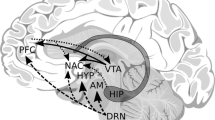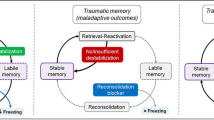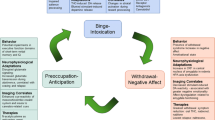Abstract
Rationale: Conflict procedures used to detect anxiolytic-like activity of drugs often rely on maintaining strict schedules of water or food availability. It is ethically and practically desirable to reduce such states of deprivation in animal testing. Objective: The purpose of the present experiment was to develop and pharmacologically characterize a conflict drinking procedure that did not require the use of water-deprived animals. Methods: Rats were tested during daily sessions with alternating unpunished drinking (no tone: lick=sucrose solution) and signaled punished drinking (tone: lick=sucrose+shock) components, and developed individual steady baselines over a brief training period (approximately 3–4 weeks). The drugs tested i.p. were the positive allosteric modulators of γ-amino butyric acidA (GABA)A receptors, diazepam (0.03–30 mg/kg), chlordiazepoxide (0.03–30 mg/kg), lorazepam (0.03–10 mg/kg), zolpidem (0.3–10 mg/kg), pentobarbital (1–30 mg/kg), pregnanolone (1–30 mg/kg), and bretazenil (0.03– 10 mg/kg); the 5-hydroxy tryptamine1A (HT)1A-mediated anxiolytics, buspirone (1–10 mg/kg) and ipsapirone (1–17 mg/kg); and the negative controls d-amphetamine (0.3–3 mg/kg), haloperidol (0.01–0.3 mg/kg), morphine (0.3–17 mg/kg), and imipramine (0.3–30 mg/kg). Results: The experimental procedure was sensitive to increases in punished drinking by the GABAA-positive modulators, consistent with their known or putative anxiolytic activity. Further, the 5-HT1A-mediated anxiolytics increased punished drinking, although to a lesser extent and over a more narrow dose range than did the GABAergic drugs. In contrast, d-amphetamine, haloperidol, morphine, and imipramine failed to increase punished drinking up to doses that decreased unpunished drinking. Conclusions: The present results indicate that water deprivation is not a necessary condition to engender drinking conflict behavior or to obtain pharmacological effects similar to those obtained with other classical conflict procedures.
Similar content being viewed by others
Author information
Authors and Affiliations
Additional information
Received: 23 November 1998 / Final version: 15 March 1999
Rights and permissions
About this article
Cite this article
Vanover, K., Robledo, S., Huber, M. et al. Pharmacological evaluation of a modified conflict procedure: punished drinking in non-water-deprived rats. Psychopharmacology 145, 333–341 (1999). https://doi.org/10.1007/s002130051066
Issue Date:
DOI: https://doi.org/10.1007/s002130051066




